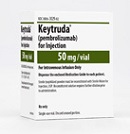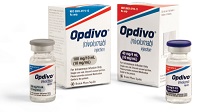 |
| Former President Jimmy Carter |
Merck's ($MRK) Keytruda got an unpaid endorsement of presidential magnitude this week. Former President Jimmy Carter announced that he is free of cancer, after a daunting diagnosis of metastasized melanoma, following radiation and Keytruda therapy.
While mainstream media scrambled to explain immunotherapy and detail the "5 things" people need to know about Keytruda, it remains to be seen whether the president's announcement will have a broader impact--and whether it could give Keytruda a boost in the increasingly competitive immuno-oncology market.
Merck's statement to FiercePharmaMarketing focused only on the good news, pointing out the recent advances restoring hope for patients with advanced melanoma, historically quite difficult to treat.
"Among these advances are anti-PD-1 therapies, which are immunotherapies that aim to harness the power of the body's own immune system to help fight cancer," Merck said in the statement. "We hope President Carter's disease continues to respond positively and wish both him, his family--and anyone impacted by this devastating disease--well as they navigate through their treatment journey."
 But numerous studies have shown there is a proven celebrity effect in healthcare.
But numerous studies have shown there is a proven celebrity effect in healthcare.
"There are clear and deeply rooted biological, psychological and social processes that explain how celebrities influence people's health behaviors," wrote researchers Steven Hoffman and Charlie Tan in a study earlier this year.
The new research, updated from work the two did in 2013, noted phenomena like journalist Katy Couric's on-air colonoscopy, which was linked to a 21% increase in colorectal screenings the next month; singer Kylie Minogue's breast cancer diagnosis, later linked to mammography screening increases of 40% in Australia; and the doubling of cervical cancer screenings in England after reality TV star Jade Goody died from the disease.
"Celebrities can strongly influence people's health-related behaviors, which can either be beneficial or harmful depending on the accuracy of their advice," they concluded.
Of course, President Carter did not specifically endorse Keytruda; however, his celebrity status and public trustworthiness would seem to make him and Keytruda discussion points for some cancer patients who've read the story.
Hoffman and Tan noted that physicians should be prepared for celebrity conversations: "The times when patients mention the latest celebrity endorsement, fad diet or miracle cure should not be seen as annoyances. ... Instead, they should be seen as meaningful opportunities to start important educational conversations. Doing so will not only inform patients on the kinds of health behaviors that are truly beneficial, but also encourage patients to place more trust in their physicians."
 Keytruda is currently vying with Bristol-Myers Squibb's ($BMY) Opdivo as the first of the coming generation of breakthrough immunotherapy cancer treatments. Both are also scrambling to win additional indications. So far this year in revenue, Opdivo is leading with $305 million to Keytruda's $159 million in third-quarter sales, respectively. Still more competition is coming: on the horizon are Roche's ($RHHBY) atezolizumab along with Merck KGaA and Pfizer's ($PFE) avelumab.
Keytruda is currently vying with Bristol-Myers Squibb's ($BMY) Opdivo as the first of the coming generation of breakthrough immunotherapy cancer treatments. Both are also scrambling to win additional indications. So far this year in revenue, Opdivo is leading with $305 million to Keytruda's $159 million in third-quarter sales, respectively. Still more competition is coming: on the horizon are Roche's ($RHHBY) atezolizumab along with Merck KGaA and Pfizer's ($PFE) avelumab.
- read Hoffman and Tan's research
Special Report: Top 15 pharma companies by 2014 revenue - Merck & Co.